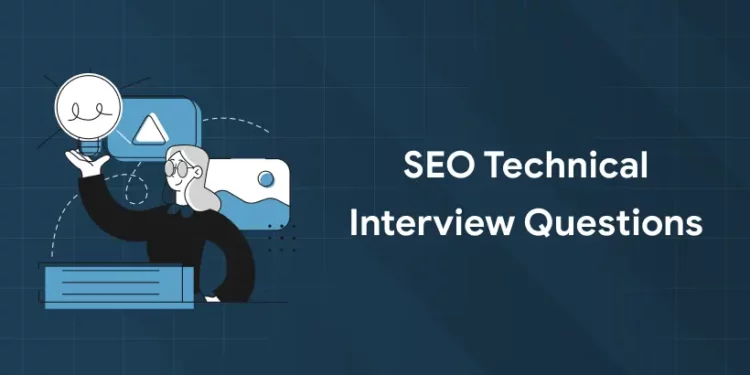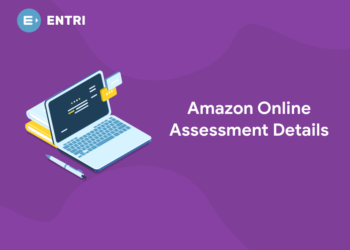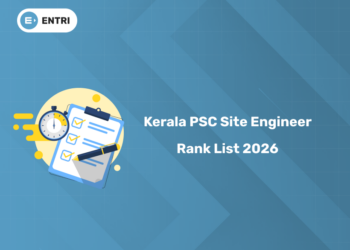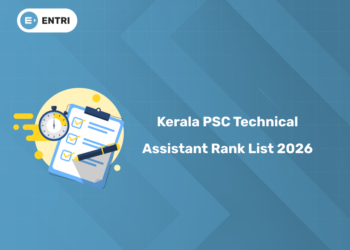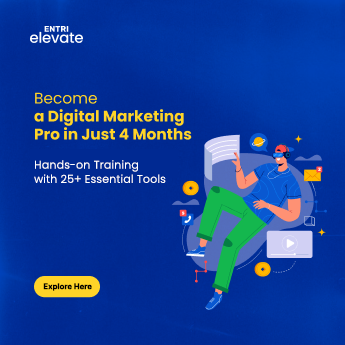Table of Contents
SEO isn’t just about ranking higher on Google anymore; it’s about delivering value in a highly competitive digital ecosystem. With brands investing heavily in content, ads, and AI-driven campaigns, technical SEO acts as the backbone that ensures visibility, scalability, and measurable results.
For digital marketers aiming to grow their careers, SEO technical interviews are a defining checkpoint. Recruiters want professionals who can think like search engines while optimising for users. In 2025, interviews have become tougher, more data-driven, and practical. If you’re preparing for a role as an SEO Analyst, SEO Specialist, or Digital Marketing Manager, mastering technical SEO interview questions is your biggest asset.
This blog explores the most common and tricky SEO technical interview questions recruiters ask, how to answer them with confidence, and how you can sharpen your skills through Entri’s AI-powered Digital Marketing Course.
Join Entri’s digital marketing course! Ace all the SEO technical interview questions in recruitment!
SEO Technical Interview Preparation Tips
Interviews for SEO are the ideal way to confirm the professional talents shown on your resume and make a good first impression on potential employers. To ensure that you appropriately represent yourself as a person and an expert, prepare for the interview in advance. How to do it is as follows.
Begin With the Basics
This covers the basics of search engine optimization. Although beginner SEO professionals may just need theoretical understanding, more experienced specialists need to apply their expertise to get practical outcomes. Thus, be prepared to showcase your advanced degree of SEO skills if you wish to climb to higher responsibilities. This entails highlighting particular SEO campaign outcomes.
Learn About the Business
Examine the primary service sections of your potential employer’s website and evaluate its architecture. To show that you are committed to the work and interested in the role, you may also perform an audit of the company website beforehand.
Arrange Your Portfolio
Arrange your accomplishments like certifications, sample projects previous employment experiences and other qualifications in a structured manner to make a good impression on the recruiters. This will show that you are accomplished as well as methodical and punctual in your work.
Top SEO Technical Interview Questions and Answers
1: What is the primary goal of SEO (Search Engine Optimization)?
Those who are just beginning their SEO adventures may find the questions below to be most pertinent. Have you already submitted applications for entry-level positions such as “SEO Associate,” “SEO Coordinator,” or “SEO Intern.” Then start your preparations as soon as possible by referring to and revising these SEO technical interview questions.
Can SEO be aided by social media marketing?
Social media marketing may still be useful in your overall SEO strategy even when it has no direct bearing on SEO. Using social media, for instance, may increase website traffic and brand awareness. Additionally, posting material to social networking sites improves its performance and may result in backlinks.
What does NAP mean in terms of SEO?
Name, Address, and Phone Number, or NAP, is a term used in SEO. Every channel—including the website, GMB, and additional local listings—should use the same data. It is really important to rank high in local organic search results.
What sorts of SEO keywords are you familiar with?
Keywords for SEO may be divided into many categories. I divide keywords into three categories based on their length: short-tail, medium-tail, and long-tail. Informational, navigational, commercial, transactional, and local keywords are among those that indicate search intent. In addition, there are trending keywords, evergreen keywords, LSI keywords, and question-based keywords.
What distinguishes a 302 redirect from a 301 redirect?
Whereas the 302 redirect simply denotes a temporary redirection, the 301 redirect is used to permanently route traffic from one URL to another.
What does domain authority mean?
Third-party SEO tools have devised a statistic called domain authority to assess a domain’s competitiveness. It is usually computed from 0 to 100, with higher scores denoting stronger authority, and is based on the backlink profile of a website. This statistic helps assess websites’ ranking potential even if Google does not utilize it.
Which additional avenues exist for digital marketing besides SEO?
Email marketing, paid advertising (such as Google or Bing Ads, influencer marketing, etc.), and social media marketing (SMM).
How can your crawl budget be increased, and what exactly is crawling?
Search bots find fresh and updated URLs on the internet by crawling. Based on variables including size, frequency of updates, page quality, and relevancy about other websites, Google determines how frequently to scan websites. Every website has a crawl budget that varies according to demand and crawl capability. The best approach to raise your crawl budget is to boost your crawl serving capacity and concentrate on producing informative material that appeals to search engines. You may also ask Google to crawl certain URLs by using the URL Inspection feature in GSC.
What distinguishes off-page SEO from on-page SEO?
The elements of the page itself (content, internal linking, URL structure, title and meta description, page experience characteristics, etc.) are optimized by on-page SEO. Off-page SEO increases a website’s authority and reputation on the outside (by obtaining backlinks, for example). While off-page SEO raises brand exposure and/or referral traffic, both boost rankings.
What distinguishes dofollow links from nofollow links? What is the purpose of them?
Link juice and authority are passed by dofollow (or simply follow) links but not by nofollow ones. When you connect to an unreliable site, you usually employ nofollow links to tell Google to disregard the link.
Which technique do you apply when rerouting a page?
A web page can be redirected using three different methods: HTML, JavaScript, and HTTP (the most popular). To set up redirects, I usually utilize a WordPress plugin. For me, this streamlines and automates the redirection procedure.
What exactly is an XML Sitemap?
A file called an XML sitemap lists every page on your website. It is used by Google to crawl and locate the URLs on your website.
What exactly is an anchor text?
The clickable text that appears inside a hyperlink and provides information about the link’s destination is referred to as anchor text. It helps consumers comprehend the stuff that they will click on. Additionally, anchor text aids in the crawler’s assessment of the link’s relevancy, which may affect website rankings.
What is meant by a robot’s meta tag?
An HTML tag called the robots meta tag is included in the <head> section of a website and tells search engines which pages they can and cannot index. It’s most likely the most powerful instruction for search engines.
What does the file robots.txt mean?
Website owners and SEOs may instruct search bots on which pages or portions of their websites should be scanned and which should not by using the Robots.txt file. It’s crucial to remember that these guidelines are for crawling, not indexing. Use robots meta tags to provide indexing instructions.
A long-tail keyword is what?
Long-tail keywords are more detailed search terms, usually consisting of three words or more. Generally speaking, they are less competitive than short-tail keywords and have lower search volumes.
What distinguishes sponsored results from organic results?
Unpaid listings that show up in search engine results based on a variety of criteria are known as organic results. On the other hand, sponsored results are paid for by advertisers and show up at the top or bottom of SERPs with a “Sponsored” tag.
How do rich snippets work?
Rich snippets are expanded versions of Google search results that provide more details like reviews, instructions, ingredients for recipes, etc. Rich results in e-commerce SEO display information like as return policies and pricing.
What does Google Knowledge Graph mean?
Billion facts are stored in a database called the Google Knowledge Graph. Google utilizes this database to give consumers fast, accurate information. It links data from many public sources and content producers, analyzes it, and then clearly displays the results.
How can you find out if a website is in Google’s index?
There are mostly two choices. The first step is to verify each page’s indexing status by visiting the GSC → URL Inspection Tool. The alternative is to typesite, followed by the website’s domain name. The latter method can still be helpful for analysis even though it is not the most accurate. Another choice is to use the search engine to copy a portion of the material from your website and check if the relevant URL shows up in the SERP.
How would you apply SEO to PPC data?
This is a possible question to test your ability to use data from many sources throughout the interview. Although SEO experts frequently don’t have direct access to PPC data, being aware of how it supports SEO initiatives shows that you may adopt a well-rounded strategy.
Below is the perfect response to the question at hand. “The best PPC insights are available from Google Ads. With this information at my disposal, I may be able to determine which keywords have the best conversion rates and generate sponsored traffic. Additionally, I could test fresh keyword clusters and page layouts for conversions using Google AdWords. At last, I could do keyword research with Keyword Planner.”
How is keyword research for YouTube conducted?
Tell us about your experience researching keywords for Google. A nice response is provided below. “I start by looking at the video’s tags, using YouTube Autocomplete, and studying the titles and descriptions of competitor’s videos. Furthermore, I modified Google keyword data for YouTube as the number of searches on Google may be similar to that on YouTube for the same terms. I also investigate more specialized tools that offer statistics on search traffic specific to YouTube queries.”
Have you looked at any other SEO channels, such as TikTok?
Share your objectives and the outcomes you have attained through these channels if you have any relevant experience. It’s acceptable if you have no firsthand knowledge of any other SEO channels. Simply demonstrate your basic familiarity with them and their usage.
Here’s an excellent answer.” I previously owned and operated a TikTok SEO firm for children’s educational software. To be more precise, I created instructional video material and enhanced it with pertinent hashtags and descriptions. I also used contemporary noises and effects. After three months of consistent blogging, we saw a 25 per cent boost in app downloads and a 300% increase in organic traffic. We also ranked in the top three for several hashtags connected to educational apps.”
What may occur if noindex tags and canonical tags are combined?
The purpose of this quiz is to assess your knowledge of technical SEO.
Google receives contradicting messages as a result. A self-referencing canonical tag informs search engines that a certain page is significant and ought to be indexed. On the other hand, the opposite is indicated with a noindex tag on the same page. It recommends that search engines remove the page from their index. Since the meta robots tag is a more powerful signal, it is doubtful that Google would index this page. As a result, your canonical tag is not used.”
Join to attend the best digital marketing course offered by the Entri app! Join today!
Become an AI-powered Digital Marketing Expert
Master AI-Driven Digital Marketing: Learn Core Skills and Tools to Lead the Industry!
Explore CourseSEO Technical Interview Questions: Conclusion
Technical SEO is a critical aspect of digital marketing, and understanding the key technical questions and their answers can give you a significant advantage in an interview setting. The questions outlined in this blog are just a few of the topics you might encounter in an SEO interview. By continuing to develop your technical SEO knowledge and staying updated with the latest best practices, you can position yourself as a valuable asset to any digital marketing team.
For those looking to refine their SEO skills further, Entri’s AI-powered Digital Marketing Course is a great way to get hands-on experience and knowledge in advanced SEO techniques, ensuring you’re well-prepared for both interviews and real-world challenges.
Frequently Asked Questions
Where can we learn SEO best practices?
Entri Elevate digital marketing course teaches a wide curriculum which also includes fundamentals to advanced levels of SEO.
Does Entri Elevate digital marketing course offer placement assistance to their students?
Yes! Entri Elevate digital marketing courses do offer placement assistance to their students.


